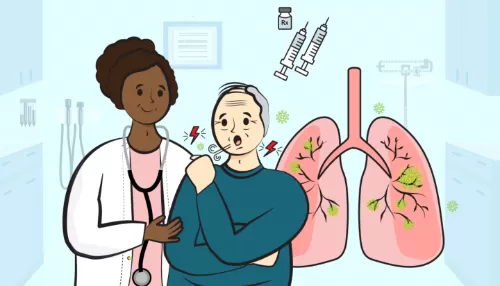Common Signs of RSV in Seniors and Vaccination Options
Respiratory Syncytial Virus (RSV) is a common respiratory virus that can cause severe illness in vulnerable populations, particularly seniors. While RSV often manifests as a mild cold in younger, healthier individuals, it can lead to serious complications in older adults. Understanding the signs of RSV and the available vaccination options is crucial for protecting the health of seniors.

Common Signs of RSV in Seniors
RSV symptoms in seniors can be subtle and may overlap with other respiratory conditions, making it crucial to be vigilant. Here are some common signs to watch for:
Persistent Cough: A dry, persistent cough that doesn’t seem to go away may be an indication of RSV. This cough can become more severe and interfere with daily activities.
Shortness of Breath: Seniors with RSV might experience difficulty breathing, wheezing, or a feeling of breathlessness. This symptom can be particularly concerning if it worsens over time.
Fatigue and Weakness: Increased tiredness and overall weakness can be signs of RSV. This can lead to decreased physical activity and a higher risk of complications.
Congestion and Runny Nose: While RSV is known for causing significant respiratory issues, seniors might also experience nasal congestion and a runny nose, which can sometimes be mistaken for other illnesses.
Fever: A mild to moderate fever can accompany RSV. It’s important to monitor body temperature regularly if RSV is suspected.
Change in Appetite: Loss of appetite or difficulties in eating and drinking can be a sign of RSV, especially in older adults who may already have a decreased appetite due to other health issues.
Vaccination Options
Vaccination is a key preventive measure against RSV, though options for seniors are more limited compared to those available for younger populations. Here are some options and considerations:
RSV PreF Vaccine (RSVpreF): This vaccine targets the F protein on the RSV virus, a key component that enables the virus to infect cells. Clinical trials suggest that it effectively reduces the severity of RSV infections in older adults.
mRNA-Based Vaccines: Building on the success of COVID-19 mRNA vaccines, new mRNA vaccines for RSV are in the works. These vaccines use mRNA to instruct cells to produce a protein that stimulates an immune response, providing defense against the virus.
Adjuvanted Vaccines: Designed to boost the immune response, adjuvanted vaccines contain additional substances that enhance their effectiveness. They are particularly beneficial for seniors, whose immune systems may not respond as robustly to vaccines.
Monoclonal Antibodies: While not a traditional vaccine, monoclonal antibodies offer an alternative method of protection. These lab-engineered proteins mimic the immune system’s natural defenses and can provide immediate, passive immunity against RSV.
Understanding the signs of RSV and exploring available vaccination options can significantly impact health outcomes for seniors. If you or someone you know is at risk, consider discussing these aspects with a healthcare professional to ensure appropriate measures are in place.

